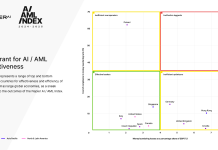The Swiss Financial Market Supervisory Authority (FINMA) intends to regulate some ICOs either under anti-money laundering laws or as securities.
Having seen a sharp increase in the number of initial coin offerings (ICOs) planned or executed in Switzerland, FINMA is publishing guidelines, which complement its earlier FINMA Guidance 04/2017, setting out how it intends to treat enquiries from ICO organisers.
With no ICO-specific regulation, relevant case law or consistent legal doctrine, FINMA plans to consider regulating the ICOs on a case-by-case basis, with each case ‘depending on the manner in which ICOs are designed’. The organization said that they may not in all cases be subject to regulatory requirements.
It will focus on the economic function and purpose of the tokens (i.e. the blockchain-based units) issued by the ICO organiser. The key factors are the underlying purpose of the tokens and whether they are already tradeable or transferable.
FINMA categorises tokens into payment tokens, utility tokens and asset tokens, but said hybrid forms are possible.
The financial supervisor money laundering and securities regulation are the most relevant to ICOs, with The Anti-Money Laundering Act containing requirements for financial intermediaries including the need to establish the identity of beneficial owners.
Money laundering risks are especially high in a decentralised blockchain-based system, in which assets can be transferred anonymously and without any regulated intermediaries. Therefore, regulation is intended to ensure that market participants can base their decisions about investments on a ‘reliable minimum set of information’ according to FINMA.
For payment ICOs, FINMA said it will require compliance with anti-money laundering regulations. FINMA will not, however, treat such tokens as securities.
FINMA also said utility ICOs do not qualify as securities, but only if their sole purpose is to confer digital access rights to an application or service and if the utility token can already be used in this way at the point of issue. However, if a utility token functions solely or partially as an investment in economic terms, FINMA will treat such tokens as securities (i.e. in the same way as asset tokens).
It does regard asset ICOs as securities, which means that there are securities law requirements for trading in such tokens, as well as civil law requirements under the Swiss Code of Obligations (e.g. prospectus requirements).
While it recognises the ‘innovative potential’ of blockchain technology FINMA wants clarity about the underlying civil law framework, which will be a decisive factor in establishing this technology sustainably and successfully in Switzerland.
FINMA CEO, Mark Branson said: “The application of blockchain technology has innovative potential within and far beyond the financial markets. However, blockchain-based projects conducted analogously to regulated activities cannot simply circumvent the tried and tested regulatory framework. Our balanced approach to handling ICO projects and enquiries allows legitimate innovators to navigate the regulatory landscape and so launch their projects in a way consistent with our laws protecting investors and the integrity of the financial system.”
Copyright © 2018 RegTech Analyst
Copyright © 2018 RegTech Analyst






